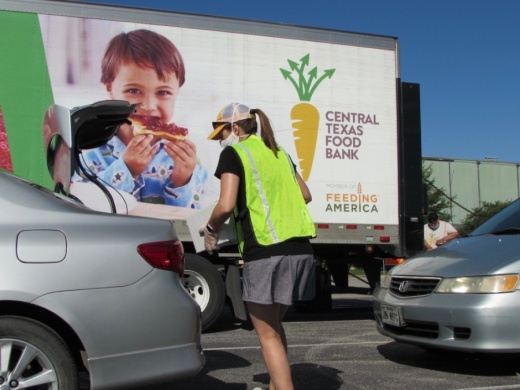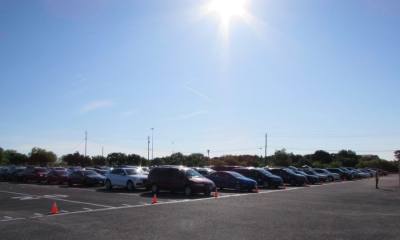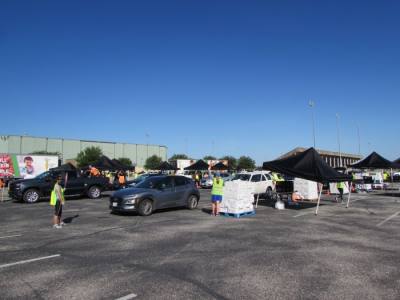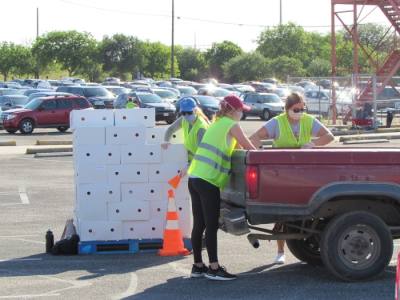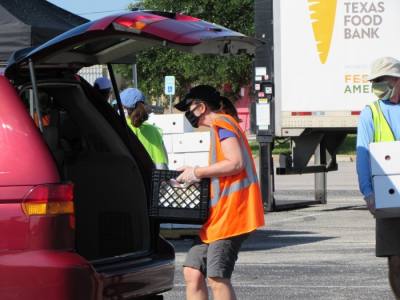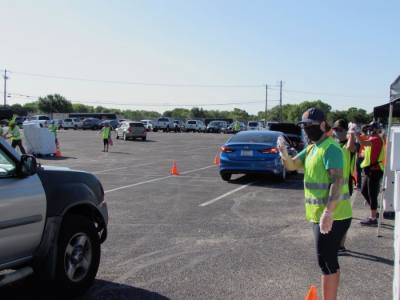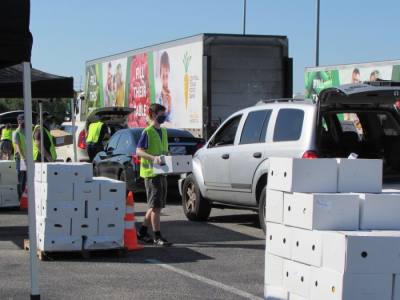Volunteers at the May 28 event filled 1,071 car trunks with items including milk, vegetables and nonperishable foods. In April, the same event drew about 1,050 vehicles, with area residents seeking groceries, according to food bank spokesperson Paul Gaither.
The Central Texas Food Bank typically serves residents through more than 60 mobile food pantries each month—serving between 120-150 families each time—as well as providing food for community partners and other area nonprofits to distribute. However, with a growing need in the community due to lost jobs or income during the coronavirus pandemic, President and CEO Derrick Chubbs said the food bank created the emergency drive-up events to reach more individuals.
“So many people are living a paycheck away from being in that line [to collect food],” he said. “We have people who have lost their jobs recently and really need that help and tell us ‘I never thought I would be here.’”
In March and April, Chubbs said the food bank saw a 200% increase in new clients using their regular resources. Some only need to pick up food once or twice a month, while others could use assistance each week.
“The face of hunger isn’t what you think,” he said. “About 70% of those who depend on us are working households. Just because you have a car doesn’t mean you have food.”
The South Austin event May 28 saw many first-time visitors, including Joe Morales, who said he learned about the event the night before online and decided to attend.
“This is the first time we’ve done this,” he said. “We needed food and our only income that is coming in now is social security.”
The final food distribution event this month will take place May 30 in Kyle at the Smile Direct Facility located at 300 Vista Ridge Drive, from 8 a.m.-1 p.m. Chubbs said he expects the turnout to be twice as high in Kyle as the most recent South Austin event.
The Central Texas Food Bank is working to finalize and release in the coming days a list of June drive-up distribution events, Chubbs said, and will continue to schedule emergency pick-up events while the need and resources are there.
“Even if you start working again, it takes quite a while to recover from [losing an income], and as this pandemic continues families get further and further behind,” he said.




